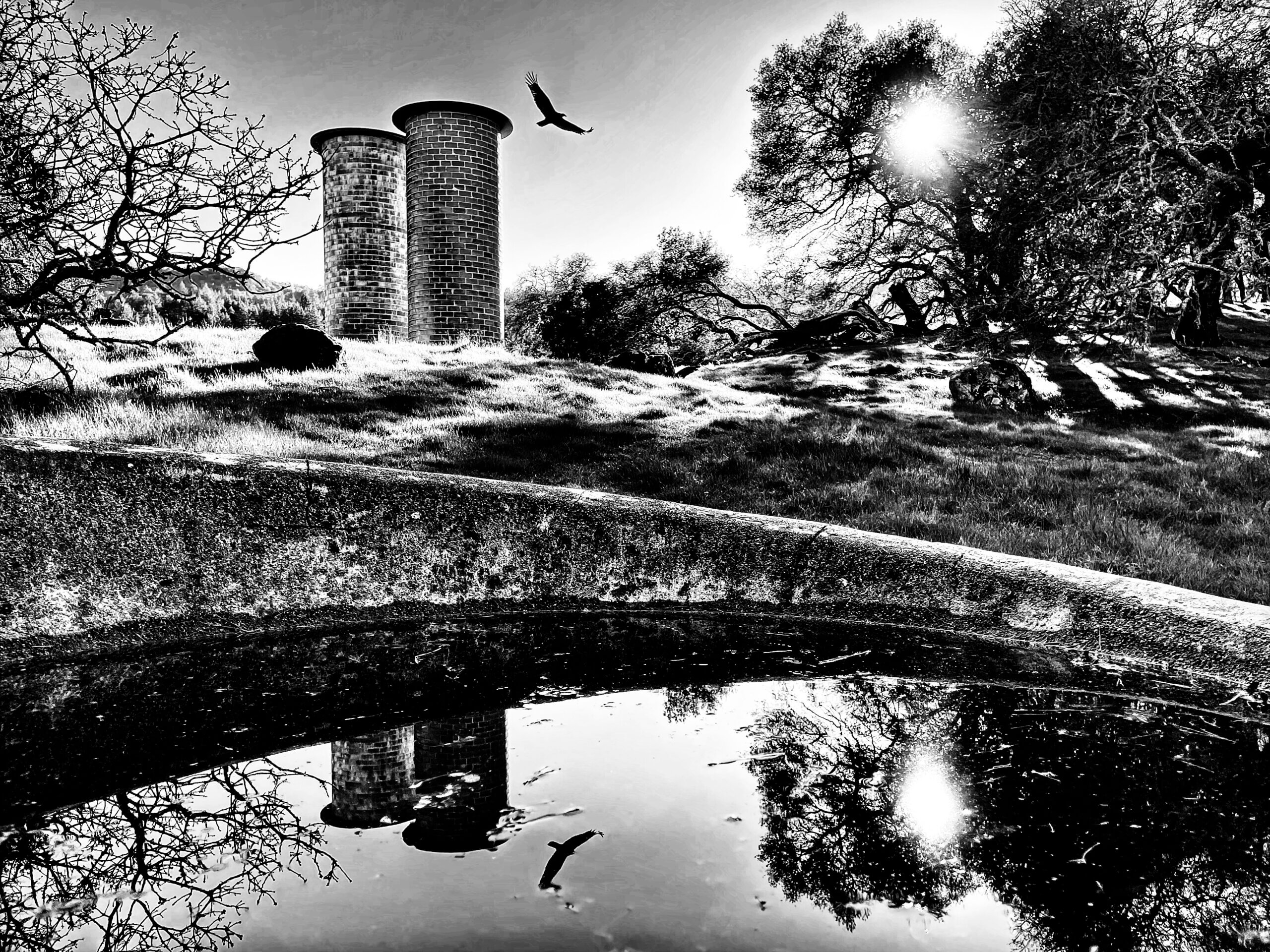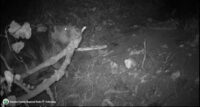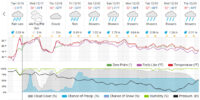This short story, In Another Time, by then 6th-grader Crusoe Kindseth was an age-category winner in the annual Jack London Park Young Writers Contest.
The young man was draped across the bunk of his sailboat, entirely at the will of the lazy afternoon sun crawling through the portholes. While he slept, his chest heaved and sighed in calming repetition, as if the hardships of his life were trying to escape from him. How this lonely little man came to this lonely little boat drifting tiredly through the great sea, began on a slow morning in his quaint house in the fog clinging town of Carmel, California. “You don’t really mean sailing, do you Fred?” his wife Mildred asked, quite taken aback.
“Well, that’s exactly what I mean.”
“Absurd, I never would do such a thing. I enjoy my feet right here on solid ground thank you, but… where would we go anyway?”
Fred smiled and pulled a crumpled newspaper clipping from his pocket and handed it to her. She too began to smile, as her eyes danced across the wrinkled photograph. Before her lay a turquoise sea and a white sand beach, strewn with palm trees nodding in the warm breeze.
“Tahiti,” she read thoughtfully. “I know this is your dream, Fred, so I may consider going for you.”
***
It had been a few months since the conversation with Mildred at the breakfast table, and many preparations had been made. In an old boatyard in Stockton, Fred had found a sturdy, twenty-seven-foot skiff that seemed to fit the needs of a young man with aged dreams, and his less than enthusiastic wife quite sufficiently. Between puffs on his cigar, the grizzled old shipyard owner had grunted that the boat was for sale for two thousand dollars. And so, money was exchanged, provisions were bought and wallets crumpled like withered leaves, but Fred’s life long dreams were being fulfilled as his new boat, The Southern Star, disappeared over the great curve of the Pacific.
There is a certain air of rapture and intriguing uncertainty that is present as one watches land turn to nothing but an anthill on the receding horizon. That was the feeling that swelled inside of Fred now as he sat in the cockpit. His hands were sturdy on the tiller as the boat rolled through the swell, the sail at his command, bulging with pride. The salty sea spray sprang playfully upon his face and chest, although he did not care in the least, for little can disrupt a man of such newfound freedom and joy.
“Mildred! You must see this,” the man cried enthusiastically to his wife in the galley. But she only stared up at him with a heavy sigh that clearly displayed her disinterest, and returned to her preferred world of Jane Austen. Over the years, a great space had blossomed between them, the man and his wife. Fred told himself now that it was only that Mildred regretted her participation in this journey, but he knew that was not it in the least. He had felt it long before this, and he felt it now, as they conversed as strangers over the torn, wrinkled map of the Pacific. “It looks as if we’ll be in Hawaii in about a week, we will reprovision there, before continuing on to Tahiti,” Fred declared tracing his finger across his carefully plotted course.
“Yes, yes,” muttered Mildred as she turned her back coldly.
The rest of the journey to Hawaii went smoothly, Fred at the tiller, his sun-kissed face firm against the ever lessening cold, and full of elation. His dispirited wife sulked somewhere in The Southern Star’s shady cabin, her saddened eyes never straying from the book in her hands, like an obedient dog.
They arrived at the port in Honolulu by eleven o’clock on Thursday afternoon. There was hardly a moment to enjoy the relaxing aura of island time however, for the days were
spent mostly rushing through sweltering shops, exhaustedly collecting provisions for the second leg of the journey to Tahiti.
“I think I will go out,” Mildred pronounced one morning, as the Hawaiian sun peeked through the open portholes.
“Ah, what a wonderful idea,” Fred responded, jumping up with a start.
“No, I am going alone,” mumbled Mildred, marching out the door.
As the hours passed and darkness settled in, Mildred failed to return. Fred worried incessantly and a horrifying thought began tugging at his thoughts. Would Mildred leave him without saying goodbye? Huddled in the shadowy cabin, he was partly unsurprised when he got the heart-shattering call. Mildred was dead. She had drowned at her own will, unhappiness her grim conqueror.
Wanting nothing but to rid himself of this cruel turn of fate, Fred left the following evening in a flurry of consternation. No tear tread upon his cheek as he drove The Southern Star through the inky black swell that night. He only stared unblinking ahead, while the moon danced gaily across the water as if daring him to come join it.
***
Fred was deeply hurt, as many men would be, even though he and Mildred were never as close as he told himself they were. When he studied the charts late at night, under the watchful stare of a kerosene lamp, he would think of her and get a sinking feeling in his chest. But that part of his life was over now, this he knew.
Fred had decided not to wear his safety harness that morning, “anyway, why would I need it on such a nice day?” he thought. He was in the cockpit, slouching in nature’s own, as he was most comfortable, and jotting in the logbook with a dutiful pen. April 4, 1974. Fair winds from the southeast, sunny, about 5 miles off Christmas Island, the pen scratched swiftly. Fred set down the logbook, stretched his weary, sunburnt body, and went to relieve himself over the side of the boat. Over the foam-crested waves he could see the green dash of Christmas Island on the horizon. He smiled at the bit of life lumbering past, but his smile would soon vanish.
Suddenly, Fred roared in pain, the terrible roar of some beast, as The Southern Star’s boom swung itself senselessly into his back, hurling him into the water. For an unknowing moment, all that was left in his place was a flurry of bubbles, showering upward to the surface like a confused rain, before Fred struggled to the surface gasping at the salty air. By the time he threw his long hair from his eyes, he saw that his boat was sailing off in complete disregard of her lost captain; like an innocent child. He summoned a few pointless strokes but he knew that his boat, his safety, was gone. The inky water rose about menacingly, as if taunting him. Fred began to panic, scared of what was to come. Bobbing helplessly among the waves, however, he began to laugh. “Why? Why keep going?”, I’ll never make it. I might as well go now. His laugh turned into a maniacal whoop, and then to a quiet sob. He thought of his dear departed wife, swallowed by this very ocean, and decided he must carry on in her memory.
Although he could not see it over the surge, he knew that Christmas Island was in a northwest direction, and he had been tirelessly pulling himself along that course for hours. The night was young, having overtaken day, and it sprawled above him, moonless, with a careless shattering of stars in its place. It was a calm night, the water was warm, and it’s threatenings well had died into a calming sway. Fred was almost at ease as he exhaustedly swam through the darkness. It was a listless moment, strangely peaceful.
All of a sudden Fred screamed a dreadful scream, writhing. He felt as though his side was smoldering, now his hand, shoulder, neck, his body flaming, burning in anguish. Fred knew what this fire was: Man-o-war jellyfish. These mindless floating animals could kill with ease. This he also knew. He was trapped, though, and had no choice but to grapple his way through the flaring sea. As he struggled, his vision became blurred with pain and he was utterly exhausted, poisoned, angered. He could barely swim any longer, and he began to sink down. Away from the agony. Away from the agony! Fred thought, and a life-saving idea came to him. Taking one last searing breath, he swam under the forest of tentacles, into the cold, deep water. He swam forward for as long as his lungs allowed, then glided upward, back up into the searing pain once again. He did this countless times until finally, he surfaced and no torrid pain brushed his skin. He was free of the jellyfish at last! He floated on his back in the painful silence, wondering why his life was spared.
It had been many hours of exhausted swimming, and Fred guessed it must have been one o’clock in the morning when he first heard the periodical crashing of breakers, and the calm water began to lift him up and set him down with a hissing sigh. This swell meant he was close to land, and while that would normally be a joyous finding, Fred knew that a deadly coral reef would be surrounding an island atoll such as Christmas Island. As he drifted closer, and the crashing turned to a terrible roar, he could see the reef in the pale light. The waves contracted, exposing the malicious array of razor-sharp coral, before rising up and shattering back across the reef. Fred watched again and again poised in the calm, behind the crashing surf, but he knew he must reach land. As the water filled around the reef, Fred swam frantically until he could stand, and when he could do so, he began to run, stagger, sloshing through the waist-high water. crying out in pain, as coral slashed bitterly at his raw feet, As the water began to drain, revealing the remaining stretch of treacherous battlefield that he was to cross, Fred stopped and clung to an outcropping of rock. He now needed only to wait, as the mighty roar of rabid frothing waves grew to an unbearable tone, rearing up, charging upon him in thrashing anger, tearing him about, shredding his bare skin across the coral. In his misery, Fred lost count of how many times he completed this grim routine, but he guessed five or six before he finally
drug his torn, limp body onto the beach. The stars gazed sympathetically down upon the lifeless man, crumpled in the sand.
The first thing Fred noticed when he awoke the next morning was the unbearable thirst that clotted in his throat like sandpaper. His wounds stung bitterly in the glaring sun, and he was forced to drag himself up the beach and into the shade of the island palms. To his relief, however, laying in the cool air, he was able to crack open a dry coconut and keep his thirst temporarily at bay with the fruit’s last dregs of juice. Finally able to think straight, thirst no longer a burden, he stumbled to his feet and began staggering away from the beach and up into the tropical foliage, for he had heard of a little fishing village on the other side of the island.
After many struggles, and more than a day and a night of searching, the village finally lay teasingly before him as he tumbled out of the green tangled mess of vegetation. But before leaving the shelter of the trees he stopped for a moment, and he wondered. In another time, in another life, if he had never followed his dreams, where would he be at this moment? Probably relaxing on the porch with his wife, sipping tea in the glow of afternoon sun. “Would you like another cup?” Mildred would ask.
“Yes, please. ” Fred would answer, staring out at the great sea, from his quaint little house in Carmel California.
Read the London-inspired works of other young winners, and find out about this year’s contest (theme, Isolation; deadline March 31) at https://jacklondonpark.com/annual-young-writers-contest/
Photos at Jack London by Diane Askew for The Sonoma Valley Sun






Be First to Comment